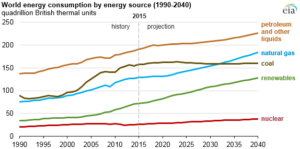When former President John F. “Rocket Man” Kennedy challenged us May 25, 1961 with an ambitious goal of sending an American to the Moon and returning him safely back to earth before the end of that decade, we had no idea at the time how we would accomplish such a task. The challenge was of a technical level beyond anything this world had seen before.
Now that the 50th anniversary of the moon landing on July 20, 1969 is upon us we relish in all the positive changes those technical achievements in navigation, integrated circuitry, electronics, and guidance systems have accomplished and enhanced our daily lifestyles. But a new challenge is at hand – Going Green. The question now is, “Are we up to it?” Going green worldwide may prove to be an even greater challenge than going to the moon.
Beyond the technical challenge of finding alternative energy sources to replace the benefits fossil fuels have provided humanity we are faced with the social upheaval of living without the advantages and advances fossil fuels have provided humanity over the last eight decades. From greater food supplies made possible by petroleum based agricultural products to supplanting the current energy source that is the life force of all the infrastructures across the planet.
Face it. People hate change and will resist it at almost every turn. So, getting a world of eight billion people to accept the challenge of not only switching their light bulbs from incandescent to CFLs (compact fluorescent lamps) and LED’s (light emitting diodes) but to recycle more, adding more energy efficient windows and even inviting longer lasting products into their lifestyles is a mission beyond the scope of any moon flight.
The technical challenge to develop a successful space program way back when was funded by the Federal government and backed by a populous fresh off two world wars who had faith in themselves and their country to accomplish whatever it or they wanted. The drive and the will were there, and it drove the project forward.
Today the all-out effort to go green will need not only government financing but backing from private industry that is profit driven. Most private industries do not survive on philanthropic idealism alone. They need to make money, or they will cease to exist. Providing them with an incentive to invest in the “green idea” must have a money-making bottom line or they’ll lose interest (no-pun intended) in any long-term projects.
Over the last eight decades most of the world has become accustomed to, some would say addicted to, the prosperity afforded them by fossil fuels and the thousands of fossil fuel by-products. Kicking that habit would be a feat accomplishable beyond even L. Ron Hubbard’s scope of mind-altering societal change.
The International Energy Agency (EIA) recently noted the energy demand worldwide grew at its fastest pace this decade with fossil fuels meeting nearly seventy percent of that growth for the second year running, Try telling Warren Buffet, the so-called Oracle of Omaha, to hedge his bets on a green technology that hasn’t been invented yet.
Looking out a few more decades to 2040 for world energy demands, the EIA projections are consistent with the past, obviously to meet the growing energy demands of militaries, airlines, cruise ships, supertankers, container shipping, and trucking infrastructures, let alone the jet and diesel engines that are the basis of modern transportation and commerce.
For the ninth straight year global oil demand has increased and will continue to increase further in the decades to come as India and China are joining an energy society that continues to decrease its coal usage and increase its use of petroleum and other liquids, and natural gas.
The green movements toward all electric societies to lower emissions for electricity generation isn’t near enough to go green and has proven to be financial and environmental disasters in rich and technologically advanced countries like Germany and Australia. With those failures we cannot expect a burgeoning nation like Kenya, for example, to get excited about moving away from their coal-based infrastructure to electric energy supplied through wind and solar applications. Their resistance will be understandably loud and furious.
Hopefully, the world will achieve the technical challenges of discovering a green replacement to the “power” fossil fuels provides to every known earth based infrastructure, and the thousands of products based on fossil fuels, and society will accept the consequences of altering their lifestyles that will result from less services and more personal input to accommodate losing the advances fossil fuels have afforded them. I don’t see it happening. I’d rather go to the moon.
